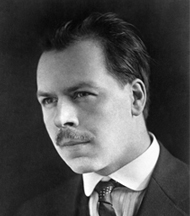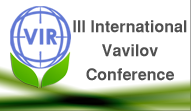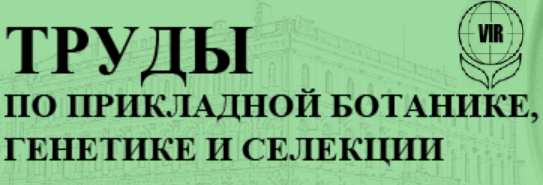«Vavilov`s collection — it`s also the Hermitage. Only a small one»
The future of the Pavlovsk experiment station and plant genetic resources collection established by academician Vavilov still hangs in the air. The next commission organized by the Russian Housing Development Foundation should announce its verdict on possibility of housing construction at these plots within two upcoming weeks. Scientists — for some reason mostly foreign — keep worrying about the future of the unique plant collection. Peter Tigerstedt, professor emeritus at the Helsinki University and participant of the Saint-Petersburg symposium organized and supported by the Nordic Arboretum Committee tells to «Fontanka» on importance of the Vavilov`s collection for science and problems of biodiversity conservation.
- Peter, conference that you attended addressed problems of biodiversity conservation?
- Not exactly. We were discussing problems of woody plant preservation and of course could not but raise the issue of biodiversity conservation. The importance of Russia here is very high —apparently the northern part of your country will be included into the association of the Nordic countries, because we have common problems.
- Nordic countries — it sounds sternly...
- Why? It`s a union of Nordic countries: Scandinavia, Baltic countries, Iceland. To include the North-Western region of Russia into it would be quite logical. Especially taking into account the fact that you have every opportunity to make a significant contribution into biodiversity conservation — you dispose of a unique plant collection established by the outstanding Russian scientist Vavilov...
- And you believe that collection is unique and still of some importance for the mankind?
- Sure, it is! For instance, when they speak about Petersburg, they mean firstly the Hermitage - it's a surprisingly great collection of paintings and artifacts, it`s the glory of your city. But I believe Vavilov`s collection is also the hermitage - only a small one. Collection of plants is not less valuable than a collection of paintings, it`s your property, your cultural heritage! In any case it shouldn’t be lost. If tomorrow, Heaven forbid, there will be some kind of catastrophe, only this collection will help us to restore the plant kingdom. It’s very important to preserve gene diversity, otherwise it will be harder for next generations to survive.
-What do you think, is it possible to relocate the collection as it was offered?
- It’s a pity that this question arose at all. You see, several years ago one could assume the issue with plots will be disputed — it doesn’t matter, whether they will be auctioned or conveyed for housing construction. I know, the station occupies 500 hectares and it was clear they will surely draw attention. But from the ecological point of view this region is very important for the whole North-West thus we have a very serious problem. If we speak about the relocation of the collection it’s a very difficult task to find plots appropriate for gardening. Besides that it’s very hard and dangerous to relocate plants with an extensive root system. I think the decision on relocation of the collection will be a big mistake.
- But what do you think, why did they take a decision on conveyance of these plots for housing construction? Why those decision-makers do not see obvious things?
- I think, this problem is usual not only for your country but for the whole world. Unfortunately, governments of all countries do not pay enough attention to the problems of preservation of plant genetic resources — this is a main reason. But now the situation is changing, I can observe it in Finland, the country where I live.
- Couldn`t the development of biotechnologies, production of GMO-plants reduce somehow the problem of biodiversity conservation?
- This was one of the hottest points of the conference. To my mind the development of biotechnologies, GMO-production — one of the approaches to solve the problem of food security. But only one. By the way many specialists are afraid by the fact that this trend can lead to a misbalance between nature and artificial plants.
- Not only the misbalance is alarming but also the fact that GMO can be harmful for human health...
- I believe such statements are mainly a result of panic. As a biologist I am sure they won’t do any harm to humans. Of course we have to take into account possible allergies, so we have to carefully examine every variety... But in general— I don’t think they are dangerous to eat.
-And monopolization of food resources?
- Yes, this problem exists and it’s very serious. Large transnational corporations can take food supplies under their control and become the only monopolists. Of course, these processes have to be regulated legislatively, but...Here we go back to the idea of conservation of biodiversity and to the world importance of the collection established by Vavilov.
- But you have said, the understanding of importance of plant genetic resources is growing in Finland. Your country is famous for environment friendly views. How could you achieve this?
- It was long ago. When I was a student in 1950-s the understanding of importance wasn’t so strong. It caused many problems. The consciousness was changing gradually and now most political parties which go to the polls have their own «green programs» ready - otherwise they won’t succeed. The issue how to achieve ecological awareness was actively discussed in course of the conference. Probably we have the only one solution — to raise it from the childhood and to tell to the wide public about biology not in the language of science but in the language of popular science.
Note
The future of two plots at the Pavlovsk experiment station occupied by the collection of plants is still vague. At the present time lands and collection are being inspected. After that experts among them academicians of RAS (Russian Academy of Science) will draw a conclusion regarding their status, evidently they will announce their final verdict — whether the collection will stay where it is now or plots will be conveyed for housing construction. Meanwhile foreign scientists having participated in the conference on woody plants signed a statement «to all decision-makers» with an appeal «to pay special attention and precaution to this invaluable heritage», which has not only national but also global importance.
Kira Obukhova, “Fontanka.ru”





